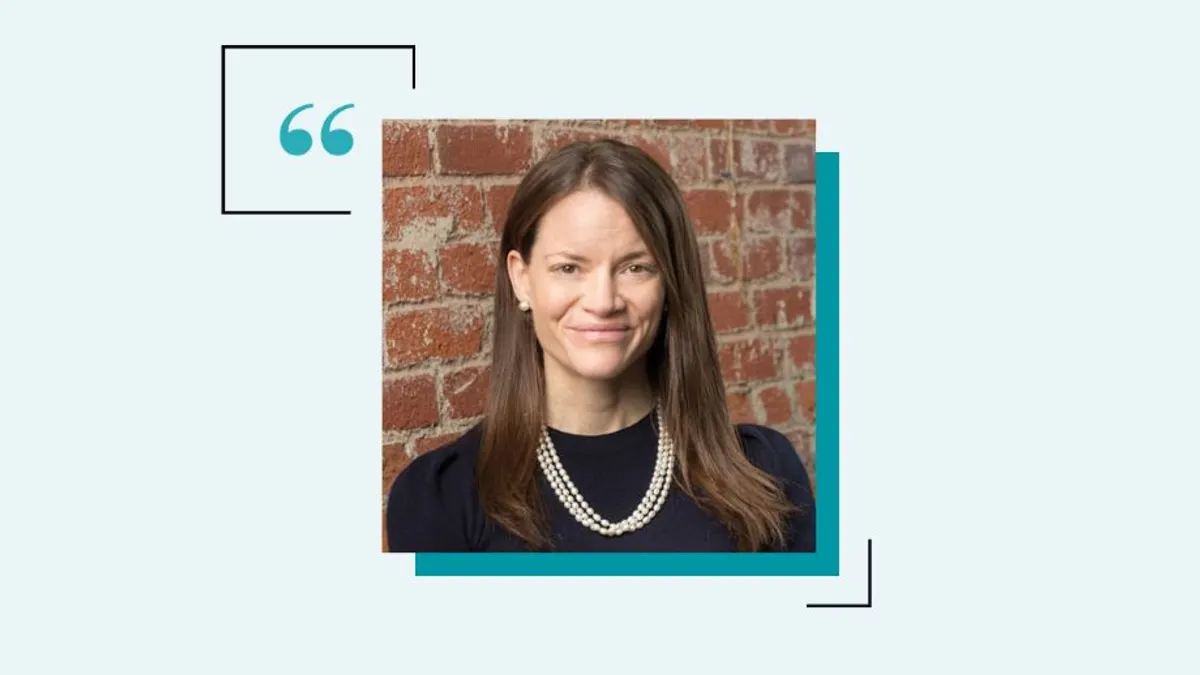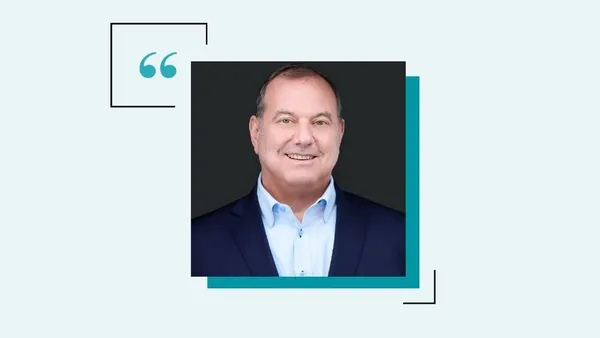For Lynsey Wenger, CFO at Pairwise, a food tech that specializes in gene-editing capabilities and deep crop science expertise, work experience outside the traditional realm of CFO has played to her strengths.
She has a combined 16 years of experience in equity derivatives and global natural resources investment banking at Goldman Sachs, and for her, "cash is king."
When Wenger isn't running in preparation for a triathlon, she and her team of leaders are running a start-up that is balancing collaboration between multiple different teams doing completely different things. From farms to greenhouses to laboratories — the people, products, and brands behind Pairwise need a solid financial anchor that few others, outside of a veteran Goldman Sachs banker, would be able to take in stride.
 Lynsey Wenger
Lynsey Wenger
CFO, Pairwise
- First CFO position: 2016
- Notable previous companies:
- Calysta
- Goldman Sachs
This interview has been edited for brevity and clarity.
ADAM ZAKI: How would you describe your approach to leadership? Is there anything from your previous work experience that helped build your communication and people skills?
LYNSEY WENGER: I try to take a servant leadership approach and understand, from the ground up, what is required from our various teams across functions and skill sets. Especially in a startup or smaller company, you often need to roll up your sleeves and dive into areas that may be outside your comfort zone. Having empathy is a crucial part of being an effective leader. You need to be able to put yourself in someone else’s shoes and understand their perspective, so you can communicate what you are hoping to achieve in a way that resonates.
I am a "non-traditional" CFO, in that I spent the vast majority of my career in investment banking. What that experience taught me is always to approach things with an open mind and to ask questions. In banking, it was more about due diligence and risk mitigation.
What do you think about changing work environments? Do you have thoughts on things like return-to-office policies or a four-day workweek?
WENGER: Pairwise has this unique business model that is lab-to-table. We work through the farmer, processor, and retailer to the consumer. And each of the people along that value chain, whether it’s our employees or employees of our partners, require different levels of flexibility. So, for me, it’s less about in-person versus remote, and more about fit-to-role and fostering environments that allow people to do their best work.
Finance is an easier job to do remotely. I have team members all over the country, and I don’t require them to come into the office a certain number of days each week. However, we also have folks based in labs and fields and greenhouses, and the reality is mother nature doesn’t work five days a week.
As CFO, you need to go back and forth between strategy and operations and slowly help the organization along, all while building the right financial KPIs so [you] can measure progress.
It’s 24/7, 365 days a year, and our employees need to meet those timelines. That means we need to be flexible to support the people doing that work. For instance, our office had a soft close between Christmas and New Year’s Day this year, but there were still people who needed to be on site. So, how can we give the days back to those employees? We spend a lot of time thinking about things like that.
What are you prioritizing this year?
WENGER: As a five-year-old startup, raising capital is always going to be a high priority as CFO. The challenge is to strike a balance between fundraising and delivering on Pairwise’s mission to build a healthier world through fruits and vegetables. Instead of operating within an existing framework, we are operating in uncharted territory, which is exciting but can also be a challenge.
As CFO, you need to go back and forth between strategy and operations and slowly help the organization along, all while building the right financial KPIs so [you] can measure progress. It requires a very flexible leadership style.
What parts of the labor markets, if any, worry you?
WENGER: Pairwise has increased its headcount by 50% since I joined. I think talent is always difficult for startups because they don’t have established brands. Our challenges are about skill sets and attracting the right people. Pairwise has everyone from molecular biology scientists to blackberry agronomists to finance wonks, all in the same company. We need to be able to communicate with each other, in areas that are new or foreign to the other side, to get things done.
For that reason, we have a very [demanding] interview process. For instance, some candidates are required to give a presentation to the full company, which is virtually unheard of but has been crucial for us. It helps demonstrate how people think and also how they communicate with those who have different backgrounds.
Are you confident in your cash flow data?
WENGER: This is where my non-traditional CFO background comes into play. For me, cash is king. I do think startups generally have a better handle on cash flow simply because they need to. So, our board and investors are always focused on cash. Do I have reliable data? Yes. My focus is on ensuring that we have the infrastructure in place for cash flow to continue as we become a more complex business.
We have a very [demanding] interview process. For instance, some candidates are required to give a presentation to the full company, which is virtually unheard of but has been crucial for us.
Cash has become much more precious in challenging capital market conditions. During the early days of the pandemic, it was interesting to see traditional companies talking about cash flow to their investors because the market had shut down. Airlines suddenly started to look more like startups. I think the focus on cash flow has increased quite a bit overall.
Do you believe in quantity or quality when it comes to financial forecasting? Why?
WENGER: I’m all about quality. We are fortunate to be a startup in that we are building everything from scratch. We are not a mature company. I read horror stories about finance teams having to do 200 different cuts of financial analysis for different internal stakeholders on a regular basis. We try to right-size the amount of information we can provide and create tools like dashboards that convey data and trends as succinctly and meaningfully as possible. The details are always there, but we don’t go into detail just for detail’s sake.
![]()














